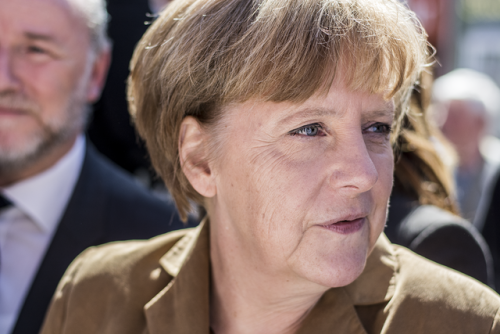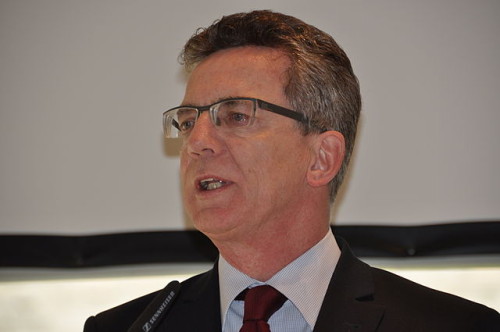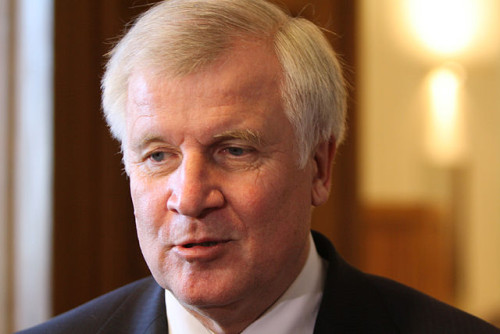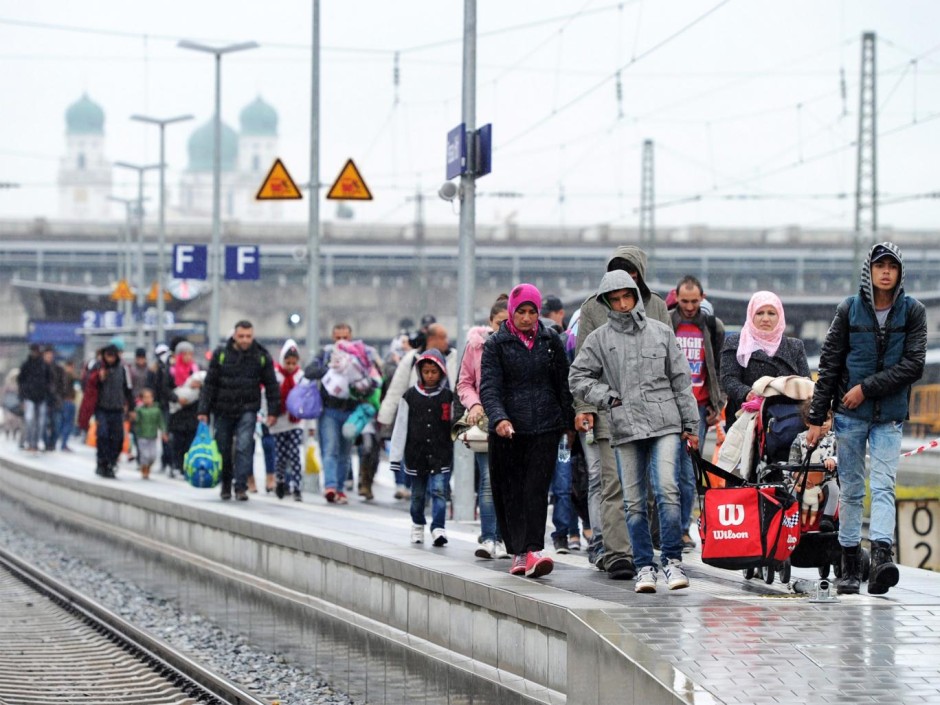
Germany’s love affair with the seemingly endless numbers of refugees from Syria and other nations entering the country seems to have reached its limits, and Chancellor Angela Merkel has come under mounting criticism for her asylum policies.
Opponents of Merkel’s decision last year to allow more than one million asylum seekers into the country have been vocal in demanding a less welcoming policy and they seem to be having their way.
The backlash gained momentum after the New Year’s Eve assaults against women in Cologne by men largely described as Arab or North African in appearance. Critics claim the government is now failing at its most basic tasks: protecting its citizens and upholding security and public order.
The police in Cologne and Dusseldorf have since raided North African communities in those two cities in a crackdown on crime.
Some 40 percent of Germans want Merkel to resign because of her handling of the crisis, according to one recently published poll.
Indeed, there is a very real chance her three-party coalition government, which includes the Social Democrats and the Christian Social Union (CSU) of Bavaria along with her own Christian Democratic Union (CDU), could unravel.

So on February 3, the German cabinet took steps toward tightening asylum rules, including a two-year ban on family reunifications. They will now exclude three North African countries — Algeria, Morocco and Tunisia — from their asylum list. Refugees from those countries can now be sent home.
It will also become easier to deport migrants who commit crimes. As well, asylum seekers will have to provide small contributions from their monthly stipends to help cover the costs of integration courses.
Interior Minister Thomas de Maizière, a Christian Democrat, also indicated that more measures would be needed to reduce the influx of migrants, but cited the package already approved as evidence of the government’s resolve to keep working toward its goals.

Merkel hasn’t been having much success in getting other European Union countries to accept a larger share of the refugee inflow, and has so far been unable to secure a deal with Turkey that would curb the number of migrants crossing the Aegean Sea from Turkey to Greece.
Germany has threatened to impose its own border controls if a shared response can’t be reached.
All this comes against the backdrop of forthcoming elections next month in three German states,Baden-Wurttemberg, Rhineland-Palatinate, and Saxony-Anhalt.
Opinion polls currently suggest that an anti-immigrant, right-wing party, the Alternative for Germany (AfD), founded three years ago, will enter all three state legislatures. In the past two years, the party has won seats in five other German states.
A political movement further to its right, the Patriotic Europeans Against the Islamization of the West (PEGIDA), formed in 2014, demands even more restrictive immigration rules, particularly against Muslims. It has been holding major demonstrations in various German cities; one rally in Dresden last October drew nearly 20,000 people.
Merkel’s description of its followers as having “prejudice, coldness, even hatred in their hearts” hasn’t had much effect.
Sigmar Gabriel, the German vice-chancellor and a Social Democrat, has accused PEGIDA of having become “a reservoir of racist xenophobia” and the “street arm” of the National Democratic Party (NPD), which is widely seen as neo-Nazi.
Nonetheless, at a forum held in Dresden January 22, attended by PEGIDA supporters, he admitted that “there is certainly a growth of populism on the right which has to do with parties and the social elites too often believing that their debates are identical with those of normal people.”
Pro-refugee politician Henriette Reker, who was elected mayor of Cologne in October, was stabbed in the neck while on the campaign trail. Her assailant told police that “foreigners are taking our jobs” and warned that Islamic Sharia law would soon hold sway in Germany.
Death threats also appeared in Leipzig against its mayor, Burkhard Jung, over his pro-refugee policies.

Horst Seehofer, the CSU minister-president (premier) of the state of Bavaria, has been pressuring Berlin to tighten its liberal policies. (Many of the migrants enter Germany at the Bavarian border with Austria.)
He wants a cap on the number of refugees Germany will accept, and an expanded list of “safe” countries from which applicants will be rejected. “If our asylum policy isn’t corrected,” Seehofer has warned, then “the existence of the CDU and CSU” is threatened.
Henry Srebrnik is a professor of political science at the University of Prince Edward Island.

